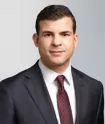The business of buying, selling, investing in, and arbitraging legal claims continues to grow, and carries with it hidden pitfalls. This is particularly the case when a litigation expert has a business relationship with a company in that business. The decision by Judge Paul L. Friedman to unseal the transcripts and filings in In re: Rail Freight Fuel Surcharge Antitrust Litigation, Case No. 07-mc-00489, in U.S. District Court for the District of Columbia, with regard to a possible conflict of interest involving the direct purchaser plaintiffs' expert, Dr. Gordon Rausser, sheds new light onto the dangers. These materials became available on the public docket on November 7, 2014, and they are eye-opening. Every attorney who hires or deposes experts needs to incorporate their learnings.
The defendant railroads in Fuel Surcharge have alleged that the direct purchaser plaintiffs' lead class certification and economic expert, Dr. Gordon Rausser, has a conflict of interest and credibility issue. They assert that it arises from his previously undisclosed financial interest in the outcome of the case. In the defendants' filings recently unsealed by Judge Friedman, defendants allege that Dr. Rausser "has for years been an investor and advisor to [Cascade,] a group of related companies . . . engaged in class action arbitrage—the business of buying the claims of putative or absent class members on the hope that if classes are certified and the cases settle, the claims will appreciate in value." According to the defendants, Cascade has invested in the Fuel Surcharge litigation, and planned further investment. The defendants argue that Dr. Rausser's involvement with Cascade and the timing of its disclosure "raise[s] serious issues regarding Dr. Rausser's credibility." In particular, the defendants highlight that Dr. Rausser's involvement was not disclosed in response to direct questioning by the defendants on the issue at his deposition. For their part, the plaintiffs that engaged Dr. Rausser in 2009 submitted their own brief seeking leave to file a supplemental report from a new expert. They also state that they were unaware of Dr. Rausser's connection to Cascade until late October 2014, after his deposition in the case had been taken.
These revelations may have far-reaching impacts. Dr. Rausser often testifies on behalf of class action plaintiffs and is an expert in a number of notable recent and pending antitrust class actions including: In re: Processed Egg Products Antitrust Litigation,Case No. 08-md-02002 (E.D. Pa.); In re: Skelaxin (Metaxalone) Antitrust Litigation, Case No. 12-md-02343 (E.D. Tenn.); In re: Flonase Antitrust Litigation, Case No. 08-cv-3301 (E.D. Pa.); Allen et al. v. Dairy Farmers of America Inc. et al., Case No. 09-cv-00230 (D. Vt.); In re: Pool Products Distribution Market Antitrust Litigation, Case No. 12-md-02328 (E.D. La.); and In re: Southeastern Milk Antitrust Litigation, Case No. 07-cv-208 (E.D. Tenn.). These cases involve damages claims and, in some instances, plaintiff recoveries, in the tens and hundreds of millions of dollars. It is unknown as of this writing the extent to which other cases in which Dr. Rausser is an expert will be impacted. [*Disclosure note: The authors represent a defendant in In re: Processed Egg Products Antitrust Litigation].
What is clear is that all litigators who deal with experts can incorporate the lessons learned from Fuel Surcharge into their repertoire.
- When considering retaining an expert, ensure that the expert does not have an economic stake in or serve as an advisor to any entity that has a financial interest in the outcome of the case. If this occurs, it must be vetted and disclosure must be addressed.
- This also needs to be an ongoing process with multiple check-ins, because the expert or his/her consultancy may affiliate with a financing company during the pendency of the case, as may have occurred with Dr. Rausser in Fuel Surcharge.
- On the opposing side of the case, a standard part of expert discovery shouldnow include questions about whether opponents' experts have any connection to entities engaged in litigation-or-settlement purchasing or financing.
- In particular and in light of the new litigation financing industry, when deposing an expert, litigators should ask if the expert has a financial stake—directly or indirectly—in the outcome of the litigation or if the expert has any connection whatsoever to any company that does.
By implementing these learnings, both sides can avoid having an expert derailed late in a case, which can cause delays and additional costs to both sides. After Fuel Surcharge, these inquiries impacting the credibility and possible conflicts of interests of experts should become standard practice.
The content of this article is intended to provide a general guide to the subject matter. Specialist advice should be sought about your specific circumstances.


